Latest Archive
Free Newsletter
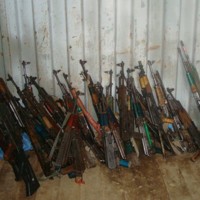
In July 2012, the United Nations will meet in New York to negotiate an Arms Trade Treaty (ATT). The new treaty would establish international standards to regulate the legal trade in small and major conventional arms. On the one hand, the treaty is groundbreaking in its global reach, inclusion of human rights criteria and widespread state support. On the other hand, even after years of preparatory talks, questions about whether negotiations will produce a meaningful and effective document persist. The Problem and the Challenge Conventional weapons present policymakers with a dilemma. They are the building blocks of military and police […]
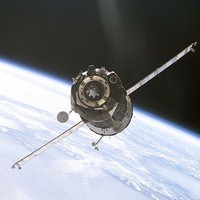
On Jan. 17, the Obama administration announced its intention to support a diplomatic initiative to strengthen international norms protective of the global commons of outer space. Key norms in need of strengthening include the mitigation of space debris, especially debris produced by antisatellite (ASAT) tests; the elaboration of rules for space traffic management; and the development of procedures to increase the safety of satellite operations and human spaceflight. The Code of Conduct for responsible space-faring nations that President Barack Obama seeks would take the form of an executive agreement reflecting voluntary measures, rather than a treaty. Space diplomacy is rarely […]
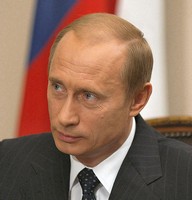
This weekend’s election in Russia has unsurprisingly returned Vladimir Putin to the country’s presidency. In contrast to the preordained outcome of the Russian voting, the winner of this November’s U.S. presidential election is not yet known. But whoever occupies the White House in 2013 will need to consider the bilateral arms control relationship with Russia in coming years. And although the implementation of the New START agreement is going well, there are sharp differences in Washington and Moscow over where to go next. Moscow’s main concerns focus on U.S. missile defense and U.S. superiority in conventional forces. Both conditions work […]

With the emergence of cyber conflict as an increasingly important concern of policymakers, the possibility is sometimes raised that nations could enter into arms control agreements of some kind to reduce the likelihood that such conflict will occur and/or to reduce or limit the damage that any such conflict might inflict. Advocates of such agreements suggest that they would enhance the cybersecurity posture of the United States. Nonetheless, there are many challenges that stand in the way of reaching such agreements, and progress toward such agreements may well be slower than some observers would like. In the 21st century, information […]

Energy security has become a strategic as well as an operational imperative for U.S. national security. As tensions continue to escalate with Iran in the Strait of Hormuz, it has become clear that the U.S. military urgently requires new approaches and innovative technologies to improve fuel efficiency, increase endurance, enhance operational flexibility and support a forward presence for allied forces while reducing the vulnerability inherent in a long supply-line tether. Assured access to reliable and sustainable supplies of energy is central to the military’s ability to meet operational requirements globally, whether keeping the seas safe of pirates operating off the […]
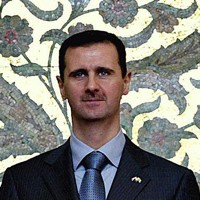
The debate among U.S. foreign policy analysts over the wisdom of an Israeli attack on Iran’s nuclear facilities — and whether or not America should allow itself to be drawn into an ensuing conflict with Iran should Israel strike — has largely taken place parallel to the debate over whether to pursue an R2P, or responsibility to protect, intervention in Syria. It bears noting, however, that forcing Syrian President Bashar al-Assad’s departure may be the best near-term policy for the U.S. to avoid being sucked into an Israeli-Iranian war. Clearly the Assad ruling clan deserves our best efforts short of […]

The veto by Russia and China in February of a U.N. Security Council resolution calling for Syrian President Bashar al-Assad to step down has stalled efforts by the U.S., its European allies and the Arab League to halt the bloody crackdown in Syria through U.N. action. Though the U.S. is currently drafting a new U.N. resolution, calls by some observers to arm the Syrian resistance have now been echoed by Saudi Arabia, Qatar and other Gulf Cooperation Council states eager to see the pro-Iranian Assad regime replaced by a Sunni-dominated government. Meanwhile, French President Nicolas Sarkozy joined the ranks of […]
According to Reuters, an estimated 100,000 North Koreans have taken part in a rally to protest South Korea’s current round of joint military exercises with the United States. This video purportedly shows footage of the rally, although it does not specify when or where the demonstration took place. World News Videos by NewsLook
Indonesian Defense Minister Purnomo Yusgiantoro visited China in February, where he met with Chinese Defense Minister Liang Guanglie to discuss boosting military ties. In an email interview, Kai He, an assistant professor of political science at Utah State University, discussed China-Indonesia relations. WPR: What is the current extent of defense ties between China and Indonesia, and are there any noticeable trends or trajectories? Kai He: The current military relationship between the two states has developed steadily. Since 2006, military officials from the two countries have held regular security consultation talks. In 2007, the two countries signed an agreement to enhance […]
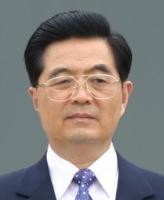
The conventional wisdom in U.S. policy circles is that China’s support for autocrats in the Middle East, most recently manifested by its veto of a proposed U.N. Security Council resolution sponsored by the Arab League that called for Syria’s Bashar al-Assad to step down, has placed Beijing on the wrong side of history. Last week, U.S. Secretary of State Hillary Clinton, speaking at the conclusion of the Friends of Syria conference in Tunis, warned the Chinese that “they are setting themselves against the aspirations not only of the Syrian people but of the entire Arab Spring.” The implication is that […]
Moroccan Foreign Minister Saad-Eddine El Othmani traveled to Algeria in January for talks with Algerian Foreign Minister Mourad Medelci and President Abdelaziz Bouteflika. In an email interview, Ahmed Aghrout, a specialist in the international relations of the Maghreb at the University of Salford, Manchester, discussed Morocco-Algeria relations. WPR: What is behind past tensions between Algeria and Morocco, and how have they impacted regional issues such as terrorism and Western Sahara? Ahmed Aghrout: The relationship between the two neighbors has, in the main, been marked by mutual distrust and, at times, by antagonism. The beginning of the tensions can be traced […]

BELGRADE, Serbia — European Union foreign ministers this week approved Serbia as an official candidate for EU membership, paving the way for EU heads of government to confirm the decision at a summit yesterday. But though good news for Serbia and a European project intended to embed democracy and stimulate economic development, while bringing to an end to the cycle of European wars, the approval is just the beginning of what will be a long and challenging road. EU accession is unlikely to come before 2020, and, as is abundantly clear from the experience of Serbia’s neighbors, it is no […]
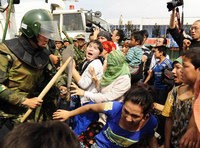
A string of self-immolations and a dramatic crackdown in China’s Sichuan Province has kept Tibet in the public eye in recent months. Yet the deaths of 20 people in violent clashes Tuesday in China’s other restive border region, the Xinjiang Uighur Autonomous Region, brought Beijing’s other major domestic crackdown back into the international spotlight. Xinjiang is home to a large population of ethnically Turkic Uighurs, who refer to their homeland as East Turkestan and have long resented Chinese rule. In recent years, restrictions on the use of the Uighur language in schools, an influx of Han Chinese migrants and curbs […]
The U.S. and North Korea announced Wednesday that Pyongyang had agreed to halt its nuclear and missile programs in exchange for American shipments of food aid. Some observers called the deal a diplomatic breakthrough, whereas others, including Secretary of State Hillary Clinton, called it a “modest first step in the right direction.” In any event, the deal hinges on the North’s need for humanitarian aid to address a food crisis whose origins “lie in 60 years of economic mismanagement by the government,” said Marcus Noland, deputy director of the Peterson Institute for International Economics. “This stems directly from the national […]
Israeli defense officials confirmed Sunday a deal to sell $1.6 billion in arms, including drones and missile defense systems, to Azerbaijan. The deal reflects the close relationship between Israel, which finds itself increasingly isolated in an increasingly hostile region, and Azerbaijan, which shares a border with Iran and is building up its military capability in the midst of its own dispute with Armenia. The news comes at a delicate time, with tensions flaring between Israel and Iran dominate headlines and analysts warning that an Israeli attack on Iranian nuclear facilities could spiral into a regional conflict. Now, growing tensions between […]
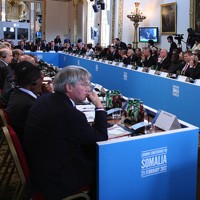
When U.N. peacekeepers withdrew from Somalia in early 1995, a brief era of concerted international pressure aimed at bringing stability to the embattled Horn of Africa nation ended in defeat. The U.N. mandate to restore law and order in the Somali capital failed dismally: A shattered Mogadishu was abandoned, and prevailing wisdom deemed the country too difficult a challenge. Today, Somalia remains the globe’s archetypal “failed state,” plagued by pervasive poverty and endemic lawlessness. But faint glimmers of hope are now emerging. As Somalia prepares to draft a new constitution and end its period of transitional governance, indicators on the […]
